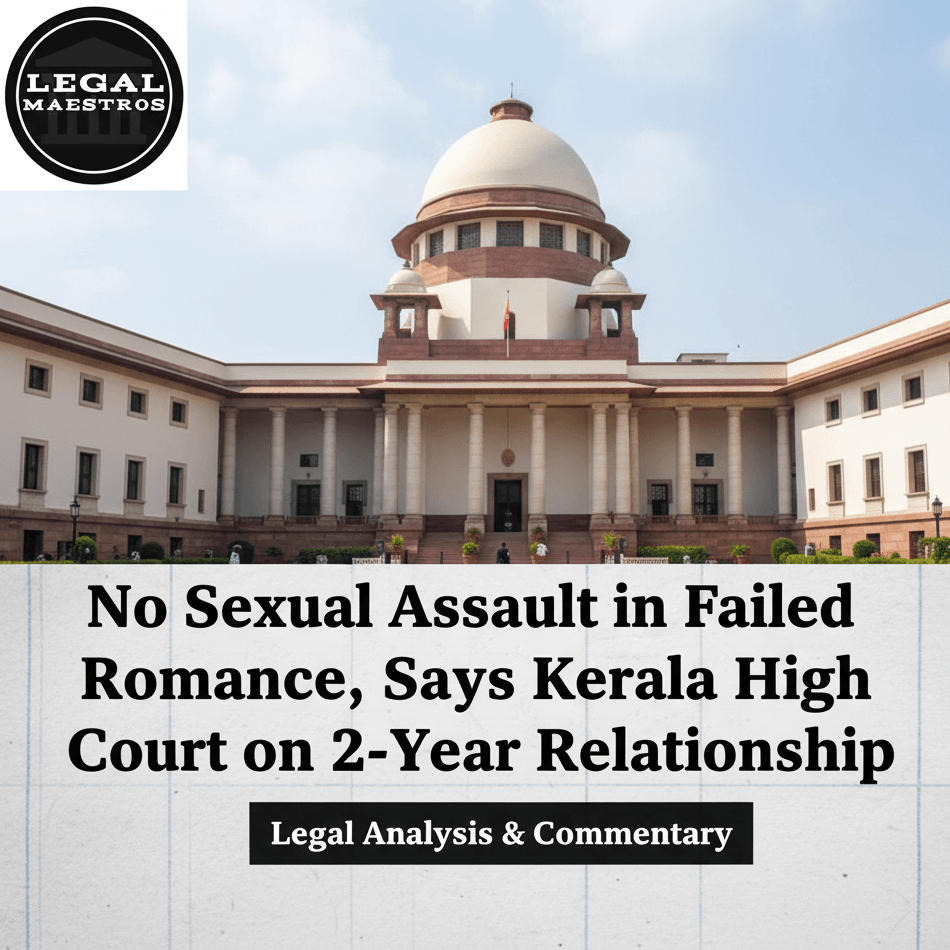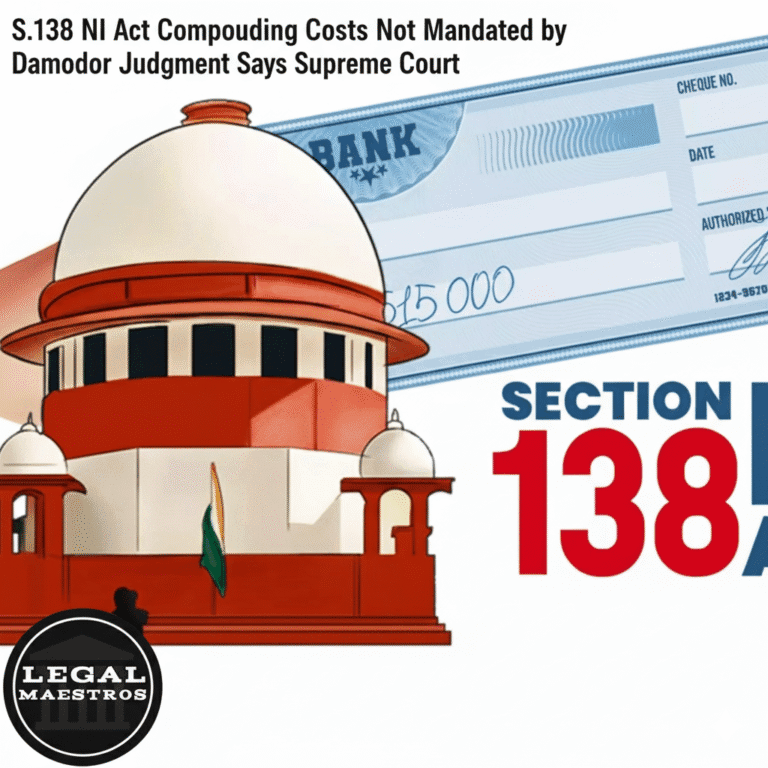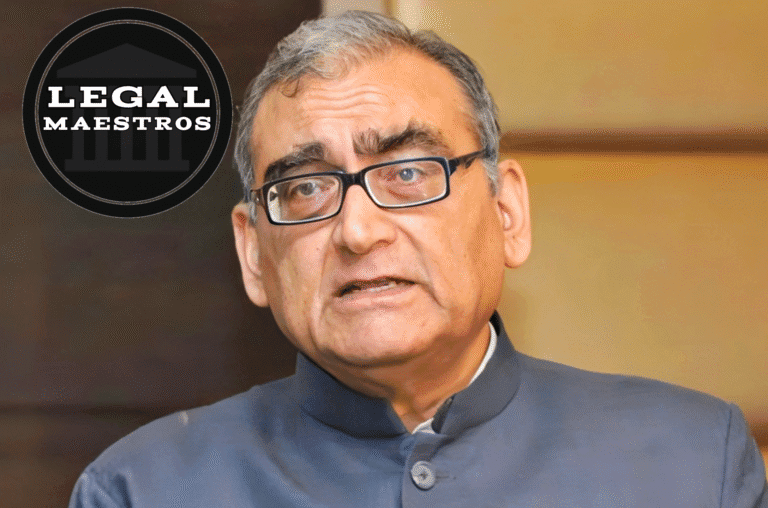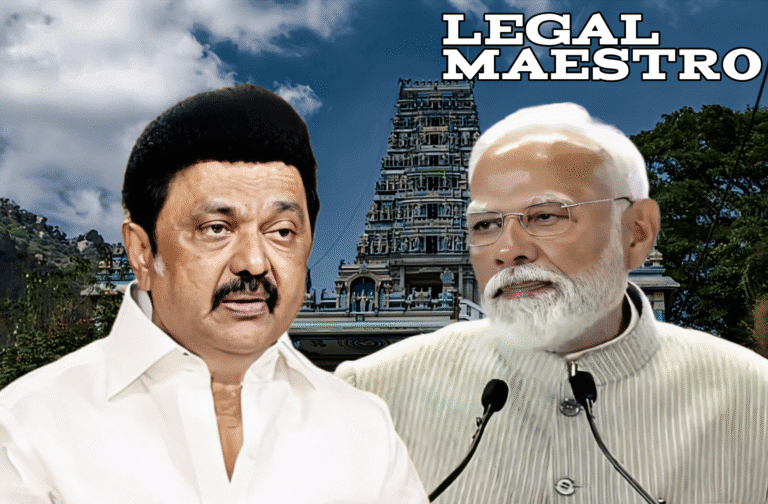
No Sexual Assault in Failed Romance, Says Kerala High Court on 2-Year Relationship
A Landmark Judgment on Love and Law
Kerala High Court has passed an important verdict which creates a clear distinction between a failed love affair and a crime. In a recent case, the court decided that sex in a long-term relationship which does not result in a marriage is not automatically considered sexual assault. The ruling concerns the growing and complicated legal problem of lawsuits claiming a false promise of marriage.
The scenario was based on a man who had a two-year long consensual relationship with a woman. The woman made a complaint when the relationship broke down and the man chose to marry another claiming that he had sexually intercourse with her falsely in the guise of marriage. In its decision, the court however differed with the nature and the length of their bond as a determining factor.
This decision is being viewed as a landmark in Indian legal history because they are trying to create a differentiation between true heartbreak and criminal exploitation. The observations of the court are to ensure the strict laws against sexual assault are not abused as a weapon of revenge or retribution when a romantic relationship does not work out. It raises to the front a required discussion on consent, intention, and the boundaries of criminal law in individual affairs.
For any queries or to publish an article or post or advertisement on our platform, do call at +91 6377460764 or email us at contact@legalmaestros.com.
The decision walks a fine line between personal commitments and the law. It amplifies the point that a promise broken can bring a lot of emotional pain, but it is not necessarily a criminal offense. The position of the court is aimed at defending both real victims of sexual assault and also against false prosecution caused by the failure in the relationship of consent.
The Crucial Question of Consent
The ruling of the Kerala High Court consisted of an in-depth examination of the concept of consent when applied to a long term relationship. The prosecution case was built on the premise that the consent to the physical relationship was conditional on the part of the woman; it was granted under the condition that the man would marry her. This can be called, as a matter of law, an consent obtained under a misconception of fact, and this can invalidate the consent.
Nonetheless, the court drew an important distinction. It held that in order that the consent shall be found void, it had to be a promise of marriage itself which must have been false. The man must have not intended to marry the woman and he was only making the promise to have sex with her and he only wanted her and no more. A later conversion or failure to marry on other grounds does not necessarily render the promise made in the first place false.
For any queries or to publish an article or post or advertisement on our platform, do call at +91 6377460764 or email us at contact@legalmaestros.com.
A key aspect in the court assessment was the length of the relationship which lasted two years. The judges noted that such a long relationship between two people suggests an ongoing and voluntary relationship between two individuals rather than a single act of dishonesty to gain consent. It implies a true romantic affair of which both parties went into it willingly even though it eventually failed to bear the desired fruit of marriage.
Thus, the court determined that all promises broken to get married cannot be presented as a sexual assault crime. The emphasis should be on the intention of the man when the relationship is started. The prosecution has a heavy burden of proving that the promise was a knowingly false promise at its inception, a heavy burden of showing that the act of lying was a calculated act rather than a sad consequence of a failed romance.
Differentiating a Broken Heart from a Criminal Act
In their ruling, the Kerala High Court attempted to make a concerted effort to detach the emotional anguish of a break up with the domain of criminal law. The court recognized that a long-term relationship may end devastatingly, but it explained that personal betrayal, however, deep, is not automatically a crime. Criminal law has no right to heal broken hearts or otherwise enforce personal promises, but it seeks to correct wrongs to society as a whole.
For any queries or to publish an article or post or advertisement on our platform, do call at +91 6377460764 or email us at contact@legalmaestros.com.
There is also a powerful warning to the misapplication of serious criminal laws in the ruling. Some of the strictest laws in the Indian Penal Code are those that ensure victims of sexual assault protection against heinous violence and violation. The court said it was worrying that such laws were being used to score points after the end of a consensual relationship, as it not only results in the wrongful conviction of individuals but also diminishes the trauma of the real victims of sexual assault.
This ruling indicates a perception of the dynamics of contemporary relations. In our current society, people get into a relationship with different aspirations and purposes of the relationship and as a result, the relationship fails. The decision of the court indicates an understanding of this social fact, indicating that the legal framework should not be used to attack a former partner due to a change of mind or circumstances.
The court is walking a fine line by raising the standards of what is a false promise of marriage. It seeks to make sure that men are not wrongly charged with a serious offense just because a relationship did not work out, but at the same time, it reaffirms the credibility of the fact that a promise made with a clear and wicked purpose to sexually exploit another is a punishable offense.
For any queries or to publish an article or post or advertisement on our platform, do call at +91 6377460764 or email us at contact@legalmaestros.com.
The Legal Precedent and National Context
The ruling of the Kerala high court is not the exception; rather, it conforms to an increasing number of higher courts in India, including the Supreme Court. Cases that deal with false promise of marriage have been struggled over the years by different courts and a legal principle is taking shape. All these determinations lead to the formation of a more distinct line of distinction between the violation of an agreement and committing the offense of rape.







